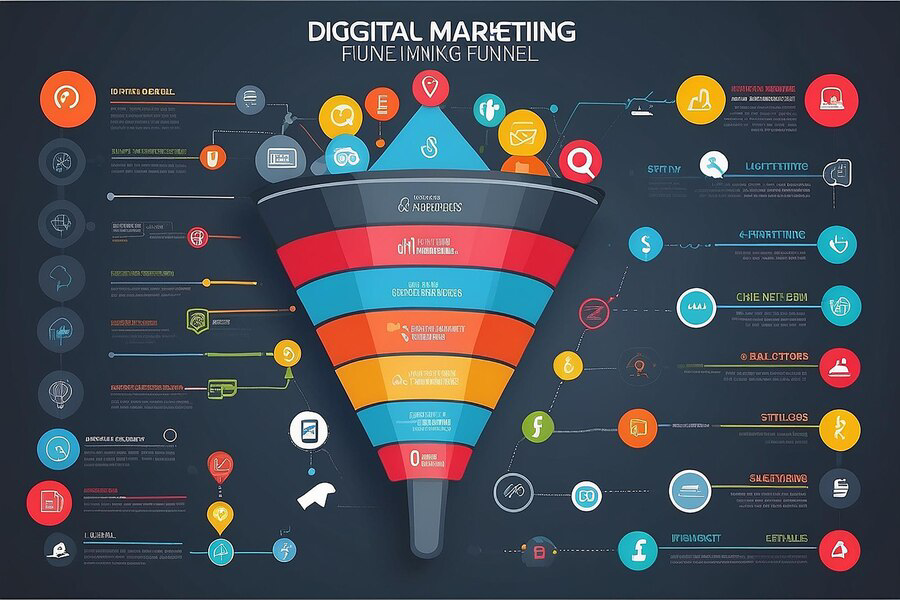222 Capitol Street, Suite 522
Charleston, WV 25301

Essential Tips For Google Ads Management
Running effective
Google Ads can feel like navigating a complex maze. With so many options and settings, it's easy to feel overwhelmed. At Ideation Digital
Marketing, we understand that optimizing your ads is crucial for maximizing your return on investment. Whether you're just starting or looking to refine your current strategy, getting the details right can make all the difference. In this guide, we'll share practical tips and strategies to help you make the most of your Google Ads campaigns. From targeting the right audience to crafting compelling ad copy, these insights are designed to simplify your journey and boost your ad performance.
Crafting Compelling Ad Copy That Converts
Creating ad copy that captivates and converts is key to a successful Google Ads campaign. Your copy should be engaging, clear, and benefit-driven. Start with a strong headline that grabs attention and clearly states what you offer. Follow up with concise, persuasive text that highlights the unique selling points of your product or service. Incorporate relevant keywords naturally to ensure your ad appears in relevant searches.
A compelling call-to-action (CTA) encourages users to take the desired step, whether it’s making a purchase or signing up for more information. Regularly test different ad variations to see what resonates best with your audience, and use these insights to refine your approach and boost conversion rates.
Understanding and Utilizing Keyword Strategies
Keywords are essential to driving targeted traffic to your ads. Begin by researching keywords relevant to your business using tools like Google Keyword Planner. Focus on a mix of high-volume keywords and long-tail phrases that reflect user intent. High-volume keywords attract broad traffic, while long-tail keywords target specific searches and often result in higher conversion rates. Continuously monitor and adjust your keyword list based on performance data.
Regularly updating your keyword strategy helps you stay competitive and ensures your ads reach users actively searching for what you offer. Additionally, using negative keywords can prevent your ads from showing to irrelevant audiences, further refining your targeting and improving overall campaign efficiency.
Optimizing Ad Spend for Maximum ROI
Effective ad spend management is crucial for achieving the best return on investment (ROI). Begin by setting a clear budget and allocating funds based on the performance of different keywords and campaigns. Use Google Ads’ bid management tools to adjust bids according to the value of each click and the likelihood of conversion. Regularly review performance metrics such as cost-per-click (CPC) and conversion rates to identify which ads and keywords are delivering the best results.
Reallocate budget from underperforming areas to high-performing ones to maximize ROI. Utilizing automated bidding strategies and experimenting with different bidding options can also help optimize your spend and ensure your budget is used efficiently.
Adjusting Bids and Budgets for Optimal Results
Fine-tuning your bids and budget is essential for maximizing the performance of your Google Ads campaigns. By carefully managing these elements, you can ensure that your ads achieve the best possible results without overspending. Here’s how to effectively adjust your bids and budgets for optimal outcomes:
- Monitor Performance Regularly: Keep a close eye on key metrics like cost-per-click (CPC) and conversion rates. Regular monitoring helps identify which keywords and campaigns are delivering the best results.
- Adjust Bids Based on Performance: Increase bids for high-performing keywords that generate more conversions and lower bids for underperforming ones to allocate your budget more effectively.
- Use Automated Bidding Strategies: Take advantage of Google Ads’ automated bidding options, such as Target CPA or Maximize Clicks, to optimize your bids based on your goals.
- Set Bid Adjustments for Devices and Locations: Customize your bids for different devices and locations to reach users who are most likely to convert based on their behavior and geography.
- Allocate Budget Wisely: Distribute your budget to high-performing campaigns and keywords, while reducing spend on areas with lower performance to maximize your overall ROI.
Adjusting your bids and budgets is an ongoing process that requires regular attention and refinement. By applying these strategies, you can enhance your ad performance and ensure that your budget is used efficiently to achieve the best results. Stay proactive and responsive to changes in performance to continually optimize your Google Ads campaigns.

Staying Ahead with Google Ads Trends and Updates
The landscape of digital advertising is constantly evolving, and staying ahead of Google Ads trends and updates is crucial for maintaining a competitive edge. By keeping up with the latest developments, you can leverage new features and strategies to improve your ad performance. Here’s how to stay informed and adapt to the latest trends:
- Follow Google Ads Blog: Regularly read the Google Ads blog for updates on new features, best practices, and industry insights to stay informed about the latest changes.
- Attend Webinars and Training Sessions: Participate in webinars and training sessions hosted by Google or industry experts to gain knowledge about emerging trends and advanced strategies.
- Engage with Industry Forums: Join online forums and communities related to digital advertising to share insights and learn from other professionals about the latest developments.
- Experiment with New Features: Be open to testing new Google Ads features and tools as they become available. Early adoption can give you a competitive advantage and improve your campaign performance.
- Analyze Competitor Strategies: Keep an eye on your competitors’ advertising tactics to identify trends and adapt your own strategies to stay ahead in the market.
Staying ahead with Google Ads trends and updates requires continuous learning and adaptation. By following these strategies, you can ensure that your campaigns are up-to-date and aligned with the latest industry advancements, giving you a strategic advantage and enhancing your advertising success.
Targeting the Right Audience for Better Results
Precise audience targeting ensures that your ads reach users who are most likely to be interested in your products or services. Google Ads offers various targeting options, including demographic targeting, geographic targeting, and interest-based targeting. By narrowing down your audience based on factors like age, location, and interests, you can create more relevant and personalized ads.
Implement audience segmentation to tailor your messaging for different groups, improving engagement and increasing the likelihood of conversions. Continuously analyze performance data to refine your targeting strategy, ensuring your ads are shown to the most relevant users and driving high-quality traffic to your site.
Analyzing Ad Performance Metrics Effectively
To optimize your Google Ads campaigns, regularly analyze performance metrics to gain insights into how well your ads are performing. Key metrics to monitor include click-through rates (CTR), conversion rates, and cost-per-click (CPC). CTR measures how often people click on your ad after seeing it, while conversion rates indicate how many clicks lead to the desired action. CPC helps you understand the cost associated with each click.
Use Google Ads’ reporting tools to track these metrics and identify trends or areas for improvement. By making data-driven decisions based on your performance analysis, you can continuously refine your strategy and enhance the effectiveness of your ads.
Leveraging Ad Extensions for Enhanced Visibility
Ad extensions are a powerful way to increase the visibility and effectiveness of your Google Ads. These additional elements, such as site links, callouts, and structured snippets, provide users with more information and options directly in the search results. Site links can direct users to specific pages on your website, while callouts highlight special offers or unique features.
Structured snippets provide details about products or services, enhancing the relevance of your ad. Using ad extensions not only improves your ad’s visibility but also boosts click-through rates and enhances user engagement. Experiment with various extension types to find the ones that best complement your ad campaigns and drive better results.
Conclusion
Effective Google Ads management is crucial for driving targeted traffic and achieving your business goals. By crafting compelling ad copy, utilizing strategic keywords, optimizing ad spend, targeting the right audience, and analyzing performance metrics, you can enhance your campaign's effectiveness. Additionally, leveraging ad extensions and staying updated with the latest trends will keep you ahead of the competition. Regularly adjusting bids and budgets ensures that you maximize your ROI and achieve the best results from your advertising efforts.
For personalized assistance and expert guidance on your Google Ads strategy, contact Ideation Digital Marketing. We’re here to help you navigate the complexities of digital advertising and drive success for your business. Reach out to us at (304) 814-2445 or visit us at 222 Capitol Street, Suite 522, Charleston, WV 25301.

Main Office
222 Capitol Street, Suite 522
Charleston, WV 25301
other offices
48 1/2 Second Ave, Williamson, WV 25661
20 Clinch Mountain Ave, Lebanon, VA 24266,
Contact
DIGITAL MARKETING SERVICES
All Rights Reserved | Ideation Digital
Private Policy
All Rights Reserved | Ideation Digital











